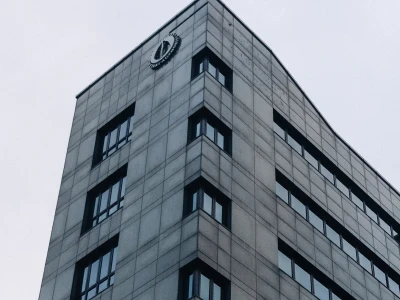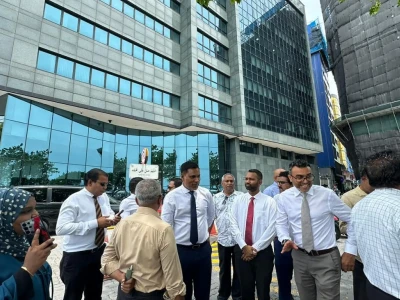
Forex bill aims to boost Maldives' reserves, Munawar says
Munawar explained that robust reserves are a critical factor for international financial ratings, which influence foreign investment.
Top Stories
-
Orange prices hike amid supply shortage in local markets
-
MMA increases dollar issuance to banks for Ramadan food imports
-
Temporary Ramadan market for local farmers opens in Malé
-
Ministry sets prohibited hours for goods transport in Ramadan
-
MACL cuts Ramadan working hours, caps overtime from 48 hours
Governor of the Maldives Monetary Authority (MMA), Ahmed Munawar, announced on Wednesday that the proposed foreign exchange (forex) law aims to bolster the country’s foreign exchange reserves and ensure sustainable economic management.
MMA on Tuesday circulated a draft bill on foreign currency exchange to various stakeholders, seeking comments on its provisions, with the proposed legislation mandating that resorts still exchange $500 per tourist and guesthouses exchange $25 per guest, with certain exemptions.
Speaking at a press conference at MMA headquarters Wednesday afternoon, Munawar outlined key aspects of the proposed law, which is open for public consultation.
Munawar stated that the management of foreign exchange transactions has been a neglected area and that the MMA has not actively intervened in reserve management. He emphasised the need to take steps to stabilise reserves, including requiring resorts to allocate a portion of their income for reserve contributions.
The proposed law mandates the MMA to maintain reserves at a sustainable level and introduces mechanisms to ensure compliance. Munawar outlined initial measures, including:
-
The MMA charging 60% of the foreign currency revenue from resorts, with the remaining 40% retained by banks.
-
Returning dollars collected by the MMA to banks without utilising them, ensuring liquidity in the banking system.
Munawar stated that banks would use the additional reserves to:
-
Increase foreign currency issuance to the public.
-
Raise card and dollar limits for Hajj, Umrah, and educational expenses.
-
Finance overdrafts for resorts in case of shortfalls.
“The aim is to ensure dollars are available through formal banking channels and not through informal markets,” he said.
Munawar explained that robust reserves are a critical factor for international financial ratings, which influence foreign investment. He noted that an improvement in reserves and credit ratings would attract more investors to the Maldives.
Citing examples from other countries, he emphasised that managing foreign exchange is common in developing economies.
“Countries like Malaysia have restrictions on foreign exchange. This is not a new concept,” he said.
Munawar highlighted the disconnect between the tourism sector and the real economy, stating that tourism revenue often operates as a separate economic cycle.
“Dollars earned by resorts should circulate within the economy to generate a multiplier effect,” he said.
Munawar concluded by underscoring the need for collaborative efforts between the MMA and the tourism industry to strengthen the economy and create a more resilient financial system.




